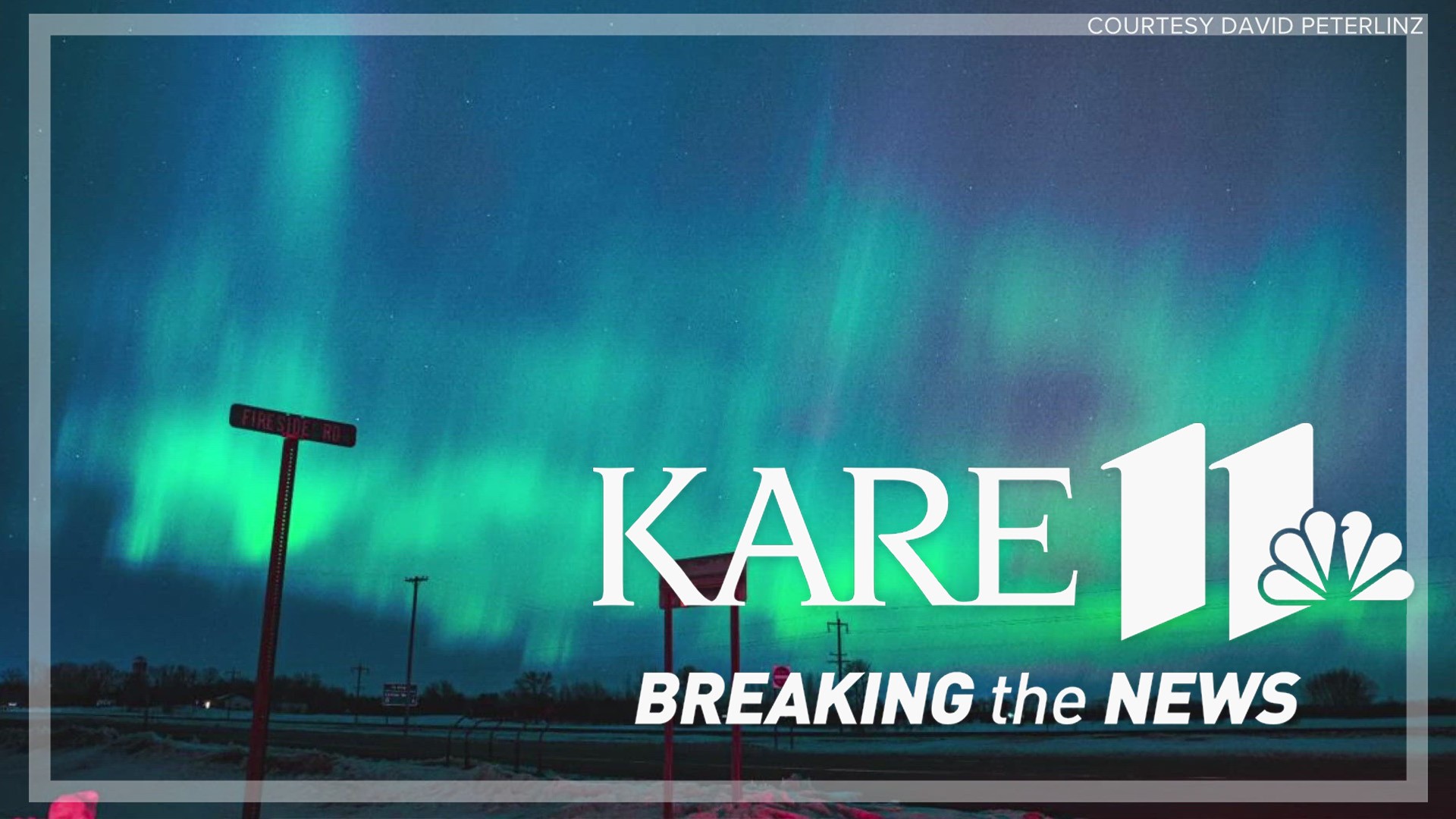MINNEAPOLIS — If you type "northern lights" into a Google search recently, you likely saw a number of news stories from reputable organizations, including KARE11, about increased chances that the aurora borealis would be visible across up to 17 states this week.
But if you're considering a trip north for prime viewing...
"Don't waste the money on gas and hotels because you will be disappointed," said Elizabeth Miller, an avid aurora photographer and administrator of two related Facebook groups, including Upper Midwest Aurora Chasers.
Miller expressed frustration on those pages on Monday, after seeing days of coverage, which was based on a long-range, and often unreliable, aurora borealis forecast.
Miller: "We've seen an explosion of interest from the public, but what I see happening, is every time the media posts hype about the northern lights, membership requests in both groups go up."
Erdahl: "I noticed you used the word hype."
Miller: "In this case, this week, the media is blowing this way out of proportion and getting people's hopes up thinking, oh the Northern Lights are going to be out on this day at this time. No. There is no guarantee of that."
According to the NOAA Space Weather Prediction Center, we are in the midst of a very active solar cycle, which has led to some spectacular geomagnetic storms and northern lights in recent months, but this week they tend to agree with Miller.
"It has gotten a little bit out of control," said Bill Murtagh, Program Coordinator at NOAA.
He says the confusion started when a 27-day forecast, based on solar activity from the last rotation of the sun, indicated that a geomagnetic storm was possible for Wednesday into Thursday.
"It started with our friends up in the (University of Alaska, Fairbanks) Geophysical Institute," Murtagh said. "There was a headline saying Aurora might be visible in 17 states. Someone got just a little bit carried away with it and next thing it caught on fire, went viral as they say, and everyone picked up on it and I'm unfortunately having to throw some water on the fire."
He says they couldn't even see what is actually coming our way later this week, until looking at data in the last 48 hours.
"We have a scale one through five, one being minor, five being extreme," Murtagh said. "At this point, what we're expecting this week is largely about one, maybe two at the best. There's been a lot bigger activity in the past couple of months, and there's a lot bigger activity expected in the coming months, but it's just not expected this week."
Next time, Miller just hopes there isn't a rush to report. Especially because even short term forecasts can be difficult to predict.
"If a PHD level space weather physicist still struggles to understand and predict this stuff, the rest of us just don't understand it. We just don't," she said.
Watch more Breaking The News:
Watch all of the latest stories from Breaking The News in our YouTube playlist:

